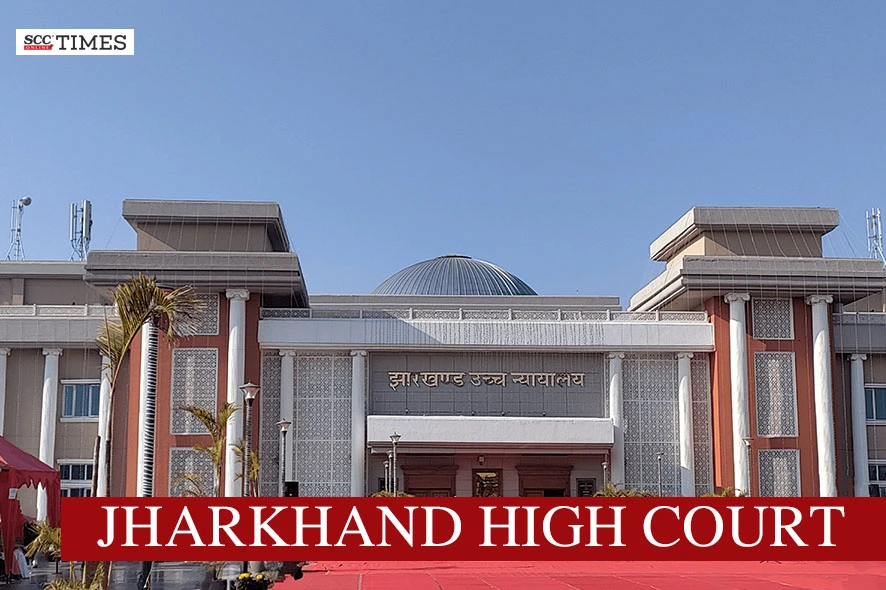Jharkhand High Court: A petition was filed seeking to quash the Office Note dated 26-10-2019 and letter dated 23-01-2020, by which the Medical Bill for psychiatric treatment of petitioner’s wife has been rejected on the ground that the same is not admissible as per Clause 6.3(i) of Contributory Post Retirement Medicare Scheme for Executives of CIL & its Subsidiaries (CPRMSE) Rules along with direction to reimburse the amount which has been spent by the petitioner for psychiatric treatment of his wife, which has been illegally deducted from the bills raised by the petitioner. Ananda Sen, J., sets aside the impugned office note dated 26-10-2019 along with letter dated 23-01-2020 and held that after promulgation of Mental Healthcare Act, 2017 and especially taking into consideration Section 21(4) of the Act, exclusion of psychiatric treatment in CPRMS is rendered nugatory.
The Contributory Post Retirement Medicare Scheme (CPRMS) is a scheme formulated/adopted by the Board of Coal India Limited in its 240th Meeting held on 08.03.2008. Admittedly, CPRMS is not a statutory scheme, rather a beneficial arrangement to give benefits to the retired executives and their spouses, provided they become a member of CPRMS.
The petitioner is a retired executive of Bharat Coking Coal Limited, a subsidiary of Coal India Limited. He got his wife treated by psychiatrist, as she was suffering from mental illness. The bills were raised, and he claimed reimbursement, but the respondents deducted the amount, which was spend for psychiatric treatment on the ground that as per the CPRMS, petitioner is not entitled for reimbursement of the amount spent for psychiatric treatment of his wife.
Counsel for petitioner submitted that treatment of mental health and mental healthcare cannot be differentiated from other healthcare treatments and there cannot be any distinction so far as it relates to mental illness and other type of physical illness. He argued that this artificial differentiation by the respondents is not based on any intelligible differentia and the embargo created by class / differentia is illegal, discriminatory and without any basis.
The Court noted that as per Clause 1.1 of the CPRMS, medicare is provided to retired executives as well as to their spouses. The entitlement and benefits provided in Clause 3.2.1.d states that there is no fiscal limit for the treatment of certain diseases mentioned therein, including heart and vascular diseases involving surgical or interventional therapy, cancer, renal disease, paralysis, AIDS, and Addison’s disease & Adrenal Histoplasmosis. This suggests that reimbursement is unlimited, but only for a limited number of diseases. However, for outpatient/domiciliary treatment, the amount payable is capped at Rs. 36,000/- per year. Therefore, from a plain reading of the aforesaid provision, any expenses incurred for psychiatric treatment undertaken by the retired employee, or their spouse are not reimbursable.
The Court observed that Section 21 of the Mental Healthcare Act, 2017 gives right to equality and non-discrimination to every person with mental illness. It provides that a person, who is suffering from mental illness, shall be treated as equal to persons with physical illness. It provides that there shall be no discrimination based on gender, sex, sexual orientation, religion, culture, caste, social or political beliefs, class or disability. It further provides that all the facilities and services for mental illness shall be of the same quality as those provided to persons with physical illness. They are also entitled to use ambulances in a similar manner as provided to people with physical illness.
The Court further observed that Section 21(1)(e) provides that any other health services provided to persons with physical illness shall be provided in the same manner to the persons with mental illness. The extent and quality will also remain the same. The statutory dictate mandates all the health insurers to make provision for treating mental illness in a similar manner as is done in respect of persons with physical illness. By virtue of this statutory provision, there cannot be any exclusion clause to exclude reimbursement of expenses incurred for treating mental ailment or psychiatric treatment in any health insurance policy.
The Court noted that CPRMS of Coal India Limited is nothing, but a sort of medical insurance cover granted to the retired executives of Coal India Limited or its subsidiaries. Thus, this is a beneficial scheme for the executives of the Company on payment of contribution. This scheme has all the elements and characteristics of a medical insurance cover. The term “medicare” as per Clause 1.1 of the CPRMS will include medicare for mental ailment also.
Thus, the Court held that a patient receiving psychiatric treatment must get the same benefit like a person suffering from physical illness and as the CPRMS provides for giving several benefits to the persons suffering from physical illness, persons suffering from mental illness is also entitled to receive the same benefit without any discrimination. The benefits also must include reimbursement of medical expenses also.
The Court set aside the office note dated 26-10-2019 and letter dated 23-01-2020 by which the medical bill for psychiatric treatment of petitioner’s wife was rejected. The Court also directed the respondents to reimburse the amount of admissible expenses to the petitioner.
[Santosh Kumar Verma v. Bharat Coking Coal Ltd., 2025 SCC OnLine Jhar 375, decided on 07-02-2025]
Advocates who appeared in this case :
For the Petitioner: Mr. Gyan Ranjan, Advocate
For the Respondents: Ms. Swati Shalini, Advocate






